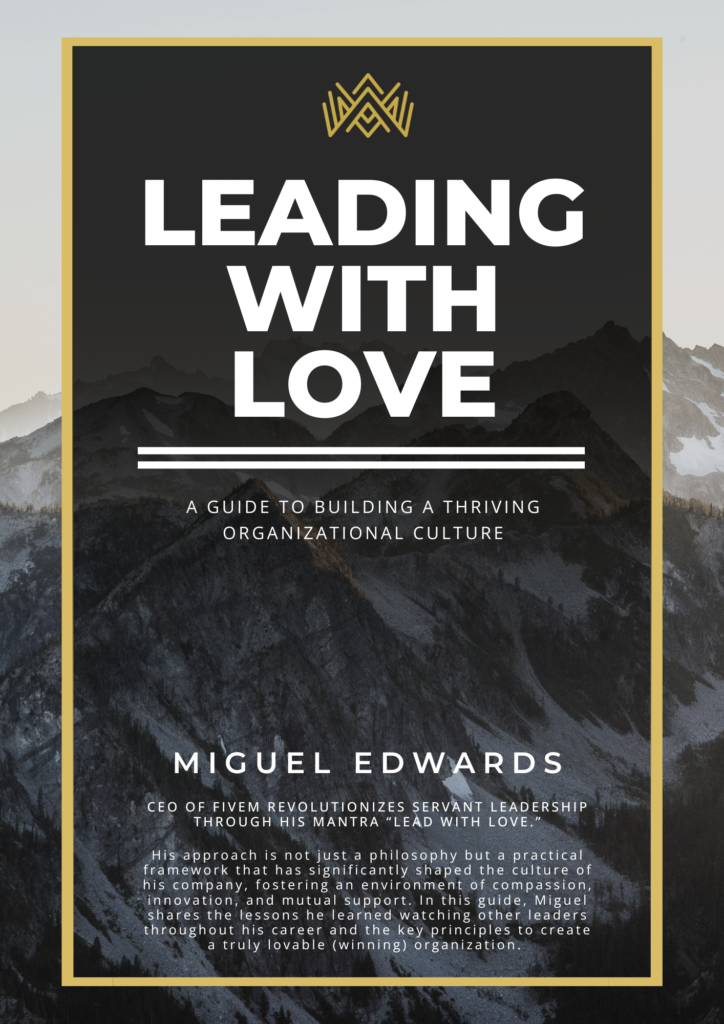Mentorship is essential for professional mastery and personal development. This dynamic relationship between you and an experienced individual offers practical guidance, support, wisdom, and encouragement. It extends beyond traditional teaching to foster independence, confidence, and sustainable knowledge. The insights are invaluable, creating a collaborative environment that promotes growth.
Effective mentors frequently receive credit for career advancement, skill enhancement, and perspective reshaping. They guide mentees with constructive criticism, helpful feedback, and practical advice to help accelerate learning curves.
Mentoring is akin to a lighthouse for those just beginning their careers. Discover industry nuances and workplace subtleties while avoiding common pitfalls and rookie mistakes. Even mid-level professionals and successful leaders can benefit from tailored mentorship through networking and knowledge exchange. Effective guidance is a continuous, lifelong journey, no matter who you are.
Let’s move beyond mere skill acquisition to explore the multifaceted benefits of mentorship at each stage of success. Gain self-esteem, cultivate a sense of belonging, and enjoy a well-worn roadmap to excellence.
Table of Contents
The Early Stages of Mentorship: Nurturing Professional Foundations
Establishing Mentor-Mentee Relationships
The Role of Mentorship in Professional Development
Avoiding Common Pitfalls with Mentor Guidance
Transferring Skills and Sharing Knowledge
Navigating Challenges in the Mentorship Journey
#1. Overcoming Communication Barriers
#3. Adapting to Changing Dynamics
#4. Dealing with Mentorship Gaps
The Long-Term Impact of Mentorship
Mentoring and Career Longevity
The Future of Mentorship: Two Trends to Watch
Choosing the Right Approach for Mentorship
The Early Stages of Mentorship: Nurturing Professional Foundations
Mentorship’s value to your professional development is most evident in the formative years of your career. This critical phase involves identifying role models and establishing relationships with them. It is where beginners lay the groundwork for a lifetime journey of self-discovery and personal achievement.
Importance of Role Models
Role models are people who live, work, and act in an inspiring or motivational way. They embody the traits you want to develop, and they have the accolades to prove it. These esteemed figures provide a tangible representation of success, offering a benchmark for career progression, whether within an organization or industry at large.
Seeking guidance from experienced experts is a proactive step that anyone can take. Mentors possess a wealth of knowledge accrued through years of hands-on exposure to real-world scenarios. They can offer career advice, help decision-making, bridge gaps between theoretical knowledge and practical application, or ensure you learn crucial lessons before it’s too late.
Establishing Mentor-Mentee Relationships
The power of mentorship is its ability to transform, enlighten, and inspire, regardless of where one stands on the professional ladder. Here’s how to make the connections you need:
- Build Trust and Rapport
The foundation of any successful mentorship is trust and rapport. Cultivate trustworthiness through open communication, honesty, and genuine interest. However, respect that trust building is a gradual process, often strengthened through shared experiences and mutual respect.
- Set Expectations and Goals
Clarity in expectations and goals is pivotal in ensuring a fruitful mentor-mentee relationship. Both parties must articulate their objectives and define the scope. Discuss skills for development, career milestones, and involvement expectations beforehand. Setting a realistic outlook creates a framework for the relationship, aligning common objectives and accountability.
FACT: The early stages of mentorship can be transformative when built on trust with clear objectives.
The Role of Mentorship in Professional Development
A solid mentorship is a symbiotic relationship between eager mentees and those with relevant experience. This reciprocal exchange of knowledge helps mold future careers and fosters lifelong bonds.
Vicarious learning opportunities abound in mentorships. These shared narratives are rich with nuances and context, offering mentees a unique perspective on how theoretical insights translate into real-world action. Mentors teach a masterclass in applied wisdom, allowing their counterparts to glean lessons from the trenches of professional life.
Avoiding Common Pitfalls with Mentor Guidance
Those who use a mentor as a guiding beacon can tap into collective wisdom, gain strategic advantages, and navigate challenges more effectively. They’re less likely to step into professional sinkholes that hinder their progress or damage their reputation. Whether sidestepping career pitfalls or understanding office politics, mentors help mentees steer their professional journeys with foresight and resilience.
Transferring Skills and Sharing Knowledge
Unlike traditional education or career development models, mentorship is a two-way street. Information flows bidirectionally, with mentors giving fresh perspectives and technical acumen and mentees providing innovative ideas and untapped passion. The two-way exchange enriches the mentee’s skills and rejuvenates the mentor’s approach, making both more effective in future partnerships.
Developing Diverse Skills
Meaningful mentorships exchange realities and provide advice garnered from multiple locations and experiences. Mentees receive more than standard facts. They develop soft skills such as communication, leadership, adaptability, and mental toughness. Exposure to a mentor’s broad skillset means exploring areas outside the expected, preparing those in their stead for a dynamic and competitive landscape.
Navigating Challenges in the Mentorship Journey
Mentoring or being mentored can be a transformative experience, but not without challenges. Communication barriers, shifting expectations, unplanned industry dynamics, and other factors can alter interactions and outcomes. Blending effective strategies and adaptability is essential. Here’s where to start:
#1. Overcoming Communication Barriers
Communication is the lifeblood of a mentorship. Establish an open and honest rapport that supports active listening, offers clarity, and demonstrates a willingness to share. Both parties must cultivate an environment welcoming thoughts, concerns, and constructive feedback. Also, maintain transparency, check in regularly, and help each other achieve critical milestones.
#2. Handling Conflicts
Conflicts are inevitable. How you manage them is what defines the trajectory of a mentorship. Conflict resolution skills are imperative to addressing issues before they get out of hand. Seek mutual understanding and compromise instead of insisting or demanding change. Build a foundation of trust so disagreements and misunderstandings don’t destroy your relationship.
#3. Adapting to Changing Dynamics
There comes a pivotal moment when mentees evolve. They transition from being guided to the one guiding. Navigating this shift requires humility, self-awareness, and grace. Effective mentors recognize the importance of continuous learning and embracing role reversals with dignity and compassion.
#4. Dealing with Mentorship Gaps
Career paths, personal commitments, and unforeseen circumstances can cause mentorship gaps that last for weeks or years. However, proactive communication and flexibility may help mitigate those gaps. Mentors and mentees can explore alternative engagement opportunities, such as virtual meetings, email correspondence, and community resources.
#5. Making It to the Top
Leadership can be a lonely place. The higher you climb, the heavier the mantle of decision-making weighs. For senior professionals, a mentor is a confidant. They are living sounding boards for the critical choices that ripple throughout an organization. The mentorship journey doesn’t end for those who “make it” because success requires a non-stop source of fresh ideas. Remain open to becoming a mentor while being a mentee.
Remember, a well-suited mentorship is like a thread in the tapestry of your career. It’s not just a professional relationship; it’s a pilgrimage that could last a lifetime.
The Long-Term Impact of Mentorship
The relationship between you and a mentor is not fleeting. Consider it a long-term investment in your personal development and professional growth. Its impact involves unexpected success stories, longevity, and cultivated culture unavailable elsewhere. Mentorship is a testament to sustained excellence.
From rising stars in the corporate world to groundbreaking startups, many attribute their achievements to mentor guidance and support. Their anecdotes underscore how personalized wisdom can elevate individuals beyond their perceived limits. Mentorship can instill the confidence necessary to overcome challenges, surmount obstacles, and learn from mistakes.
Mentoring and Career Longevity
A mentor provides information and advice to help steer professionals through the ebbs and flows of their careers. They introduce innovative insights, offer networking opportunities, and give strategic recommendations to their beloved mentees. Their enduring impact is evident in those navigating complex transitions, adapting to evolving landscapes, and excelling even after multiple career advances.
Use mentorship as a source of mental and emotional stability during adversity. Sustain your professional relevance over the long haul by forming meaningful relationships with those more experienced. Here are some tips:
- Create a culture of mentorship in the workplace.
- Encourage mentoring on all career levels.
- Embrace technology and industry-leading tools.
Build mentorship programs within organizations to establish a structure for incoming talent. Utilize an adaptive framework for pairing experienced mentors with individuals seeking guidance. Then, collaborate with leadership to formalize mentorship initiatives and enhance long-term professional development.
Effective mentoring is not exclusive to a particular career stage. Mentorships can help professionals flourish despite their position within a company. Seasoned experts and newcomers can cultivate a vibrant exchange of knowledge and points of view to foster growth inside an organization and within the community.
The Future of Mentorship: Two Trends to Watch
Rapid technology advancements define our era and drastically change workplace dynamics. While disruptive, exciting trends harness innovation and adaptability to help supercharge mentorship initiatives. Let’s explore two emerging phenomena:
AI-Powered Mentorship
Integrating artificial intelligence (AI) into mentorship programs revolutionized how individuals access knowledge and career advice. AI-powered mentoring platforms leverage algorithms to analyze career trajectories, skill gaps, and industry changes. Many can also provide personalized recommendations for virtual mentees.
AI mentors can offer 24/7 support, customized learning resources, and real-time feedback. This adaptation ensures more scalable and accessible experiences. It addresses the limitations of traditional mentorship while catering to the diverse needs of a tech-savvy and globally connected workforce.
Cross-Generational Mentorship
The future of mentorship will likely transcend generational boundaries. Cross-generational support emphasizes the value of combining fresh perspectives with seniority. This collaborative approach to teaching and learning enriches skill development and creates a workplace culture that appreciates diversity, equity, and inclusion.
As career paths become more fluid and non-linear, mentors must evolve into advisors who guide mentees through various professional phases. The multifaceted roles meet evolving needs and become catalysts for creative problem-solving and innovation.
Choosing the Right Approach for Mentorship
Finding a mentor match is essential because mentorship can shape your professional journey. Here are five key considerations to help you find what you need:
- Identify Growth Opportunities – Understand your career needs to discover mentors whose expertise aligns with your aspirations.
- Check the Objectives – Ensure your mentor’s short-term and long-term goals are relevant to your professional development requirements.
- Ensure Value Compatibility – Build a relationship on mutual respect, trust, and honest communication to avoid unnecessary conflicts.
- Explore Diverse Models – Consider alternatives to traditional one-on-one mentorship programs, including AI-powered options and peer-to-peer mentoring initiatives.
- Utilize Networking Prospects – Attend industry events, go to workshops, and schedule networking sessions with potential mentors to determine compatibility.
Seek mentorship options beyond your immediate circle. Look outside your company or organization to gain new insights and opportunities. Consider mentors from varied backgrounds who can offer unique opinions and experiences to help broaden your professional horizons.
Conclusion
Mentors are steadfast guides in the lifelong journey to professional mastery. From the early stages of embracing trends to successful leadership and cross-generational influencing, mentorship forms the backbone for career advancement. Seek mentorship despite your position or experience and turn a steppingstone into a success story.





